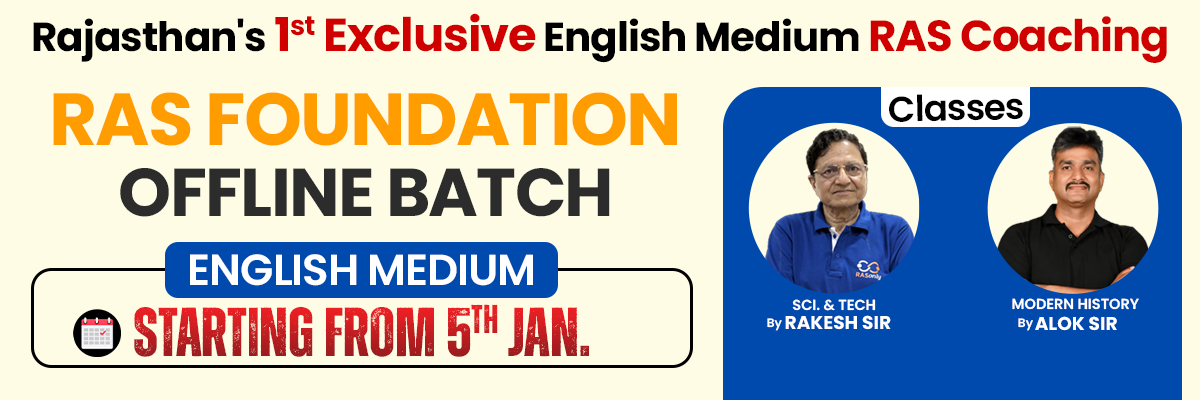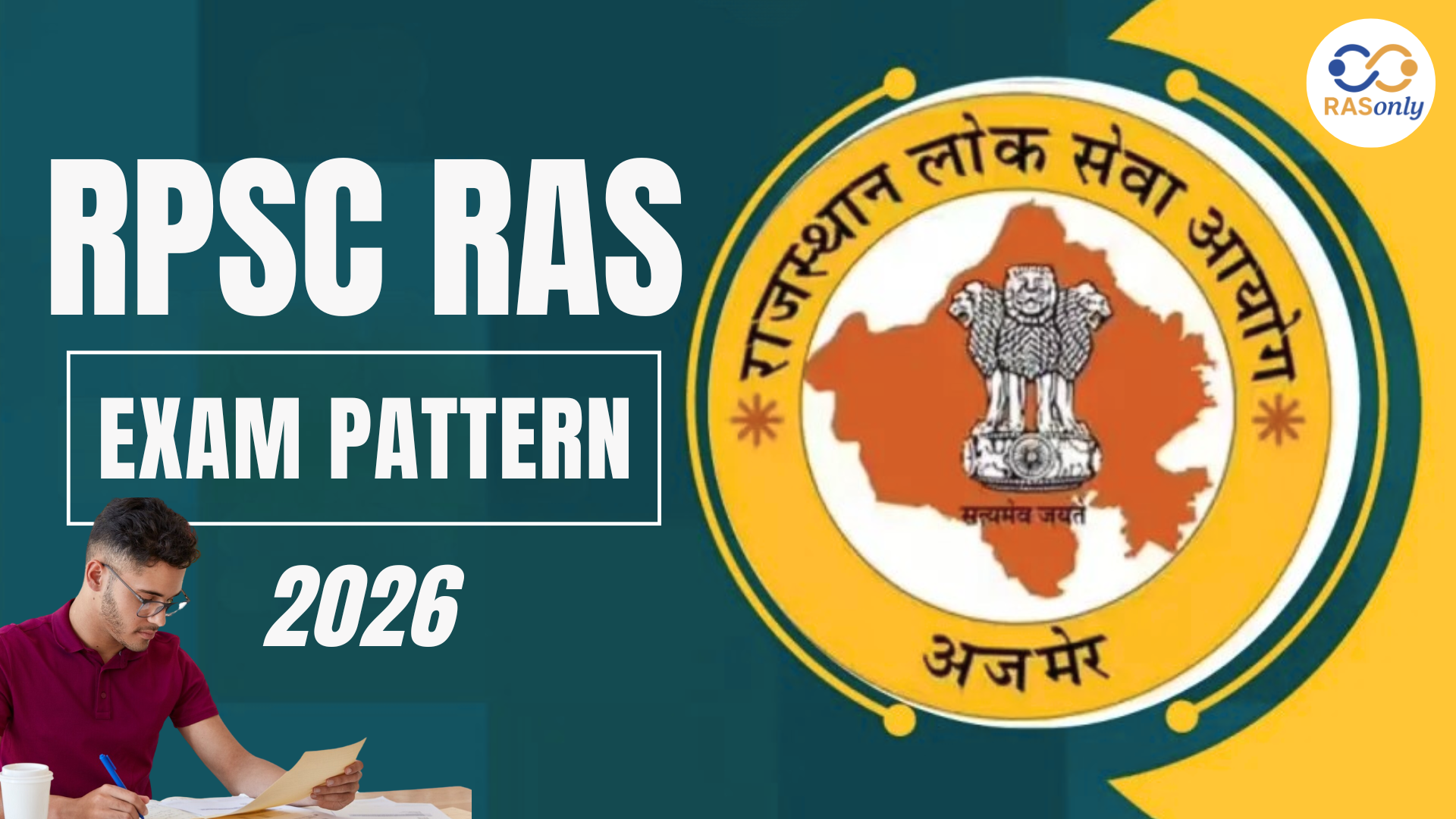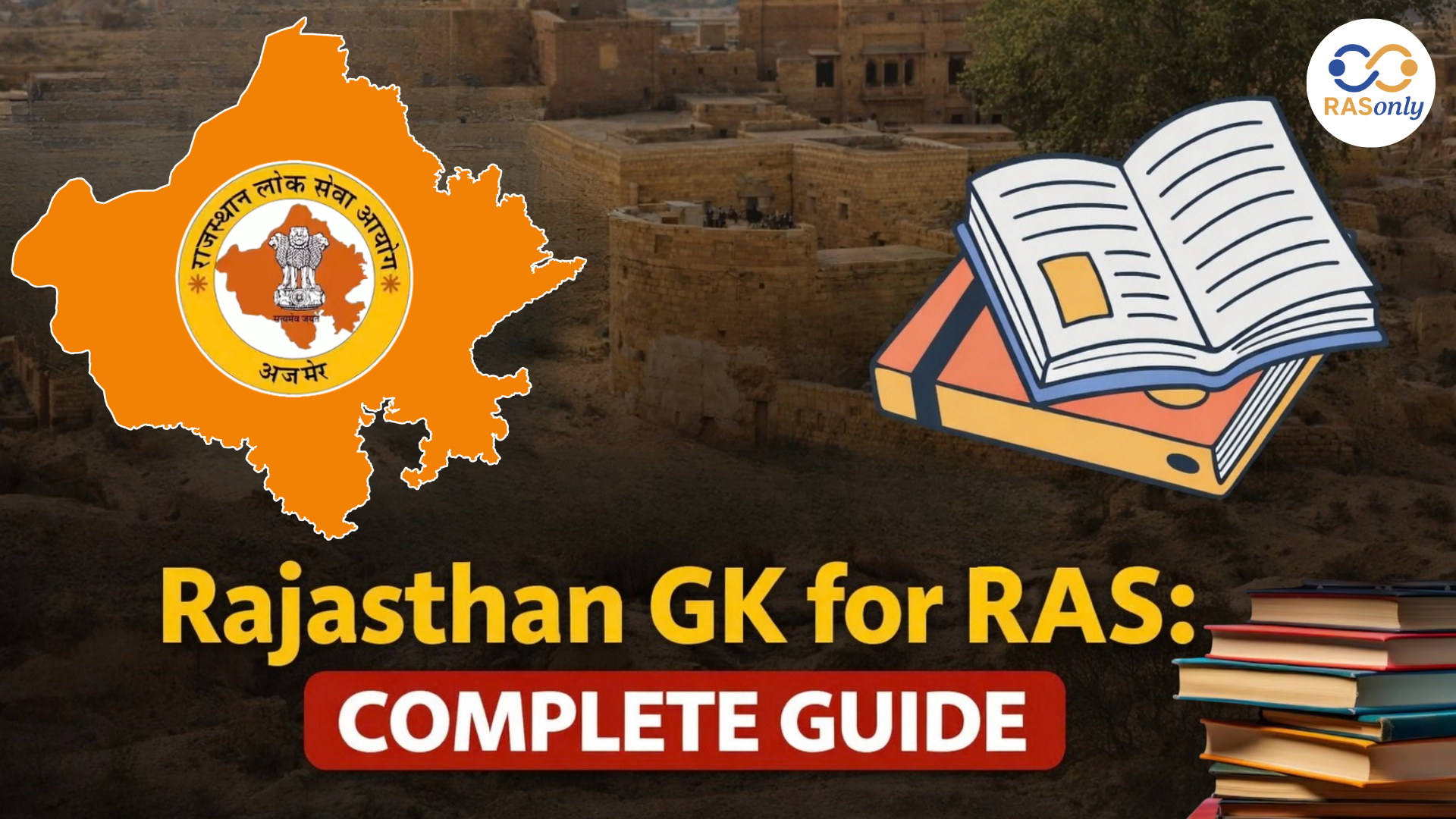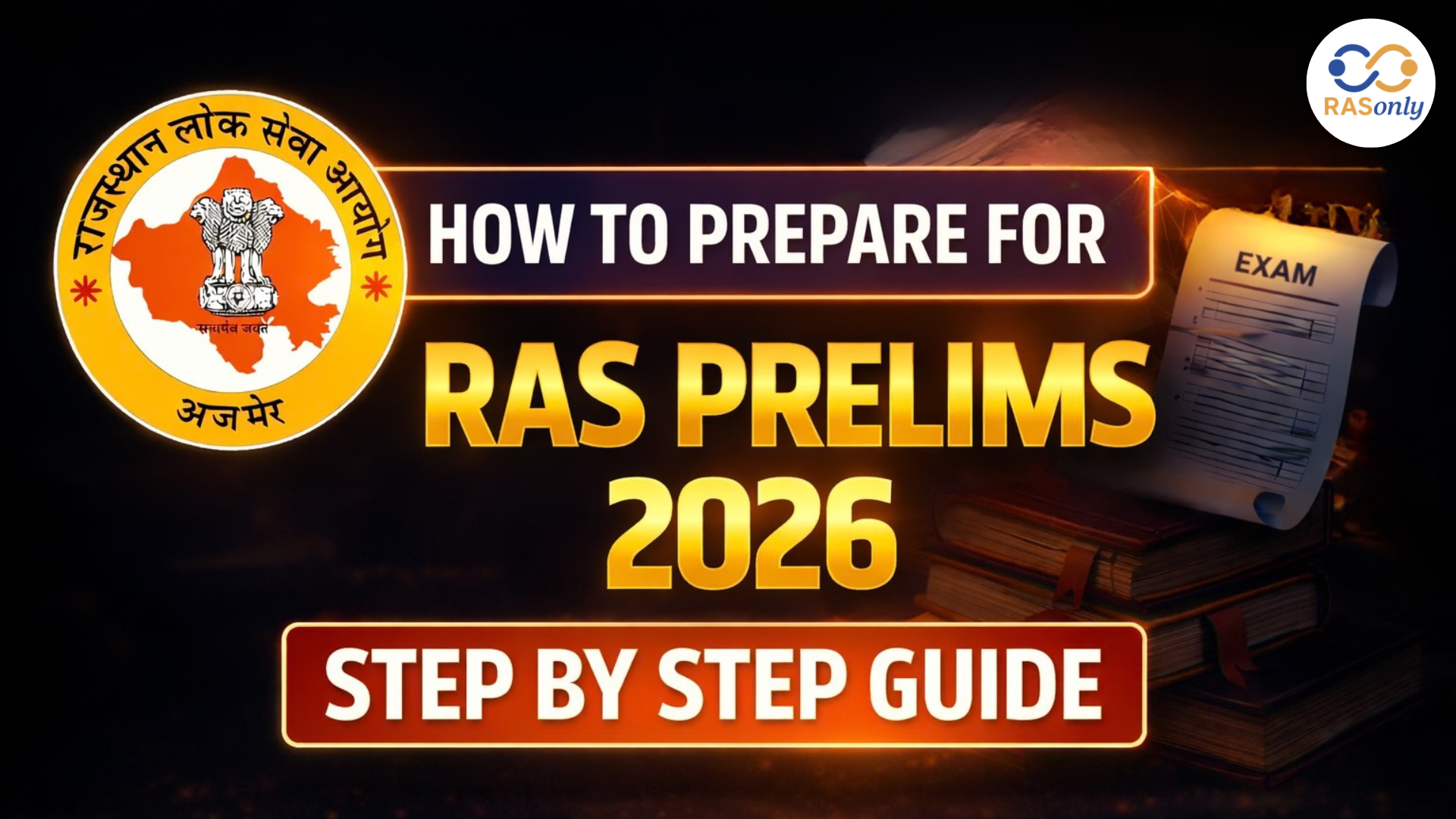RPSC RAS 2026 Subject Wise Exam Pattern for Prelims, Mains & Interview Details
- >
- RAS Preparation Resources
- >
- India Post Payments Bank: Transforming Financial Inclusion in India
India Post Payments Bank: Transforming Financial Inclusion in India

Get in Touch with RASonly!

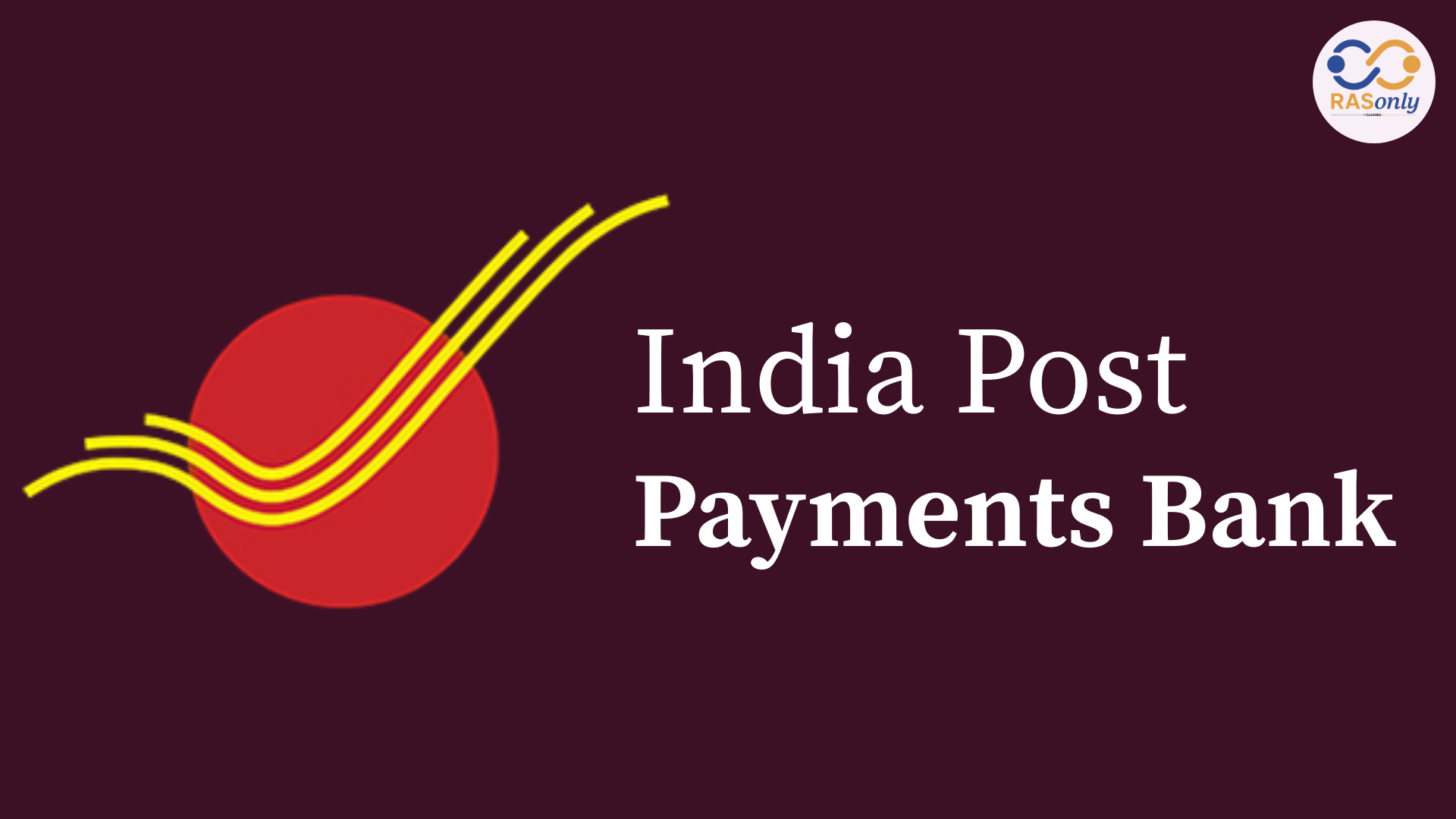
India Post Payments Bank Incorporated (IPPB) is a gamechanger in the Indian banking systems. Using the likes of the massive and well established network of India Post, IPPB will be able to deliver basic, accessible, affordable banking services to all the geographical corners of this country, particularly the rural population, who are financially excluded. With India taking some of the steps towards digital governance and financial reform, IPPB will be pivotal in terms of realising complete financial inclusion that is a core goal through schemes such as Pradhan Mantri Jan Dhan Yojana and Digital India.
History of India Post Payment bank
The concept of IPPB is informed by the position of the Government of India to reduce the gap in terms of finance and focus on the digital presence. With local banks having little success penetrating the rural and remote regions of the country, an existing strong infrastructure of post offices, of which there are more than 150,000 serving India, made last-mile banking through post offices a viable option.
- In 2015, it received in-principle approval by the RBI.
- In 2017, pilot branches in Raipur and Ranchi were opened.
- Fully implemented in India by September 2018.
Objectives of India Post Payment bank
In India Post Payments Bank Incorporated, formation of the entity with specific objectives was to ensure that banking is made easy, savings are encouraged, and digital payment is empowered, especially in the country-side. It is a dire tool that can help to include financial inclusion and literacy.
- Offer banking that is available and affordable.
- Support the government to citizen payments.
- Raise financial awareness and financial literacy.
Features of India Post Payment bank
- Current and saving accounts with zero balance.
- Domestic remittances and money transfer.
- Subsidies and pension under Direct Benefit Transfer (DBT).
- Payments of utility and bills using online platforms.
- Postal banking services via doorstep services offered by the postal workers.
Rural Financial Inclusion
- Rural-Urban Digital Divide
- IPPB will use the setup of Gramin Dak Sevaks who are currently spread all over and the postmen who are not easily discardable.
- This network makes banking available to the alienated and underserved locations.
- Powering Postal Employees
- More than 3 lakh (300,000) of postal workers are armed with knowledge of banking agents.
- These agents play the mediator role between IPPB and rural customers.
- Growth of Access to Rural Banking
- There are more than 1.35 lakh (135,000) rural post offices where the banking facilities are provided.
- This greatly adds to the coverage of formal banking facilities.
- Door-to-door Services
- IPPB provides banking services in the houses of customers.
- This is to make it convenient and accessible to those affected by mobility or movements.
Advantages of India Post Payments Bank
- To Individuals: Offers affordable and easy banking services, which enhances accessibility of money.
- To the Government: Aids in curbing leakage in subsidies in the form of direct transfers which brings in more transparency.
- To the Economy: Supports cashless transactions, which favours financial inclusion and growth in the economy.
Problems of India Post Payments Bank
- Digital Literacy: The low level of knowledge and the use of digital banking tools.
- Infrastructure Deficit: Deficiency of adequate internet on mobile accounts, particularly in primary regions.
- Competition: Competition by privately owned banks and finance companies which command the markets.
- Community resistance: Reluctance in the communities adaptive to traditional cash transactions.
Way Forward
- Service Expansion: There is the intention to launch additional services, such as insurance and products linked to credits.
- Technological expansion: Securing the digital banking platform and the mobile app service.
- Government Support: Further assistance of the Digital India mission to create greater levels of financial inclusion.
Conclusion
India Post Payment Bank Incorporated is redefining financial inclusion in India as it is taking the necessary banking services to the door steps of the people. With the help of the reliable postal network, IPPB creates one of the significant rays of hope in changing how Indians tend to take part in their banking operation.
Post Category
- RAS Salary
- Result
- RAS Admit Card
- RAS Job
- RAS Cutoff
- Preparation Tips
- RAS Answer Key
- RAS Exam Analysis
- RAS Syllabus
- RAS Previous Year Papers
- RPSC RAS Exam Pattern
- RAS Interview
- RAS Mains Exam Date
- RAS Vacancy
- RAS Test Series
- RAS Best Books
- RAS Preparation Resources
- RAS Coaching Centre
- History
- Polity
- Geography
- Economics
- Science
- Art and Culture
- RPSC RAS Application Form
- RPSC RAS Notification
RASonly Interview Guidance Program

Mr. Ashok Jain
Ex-Chief Secretary Govt of Rajasthan
- IAS officer of the 1981 batch, Rajasthan cadre.
- Passionate about mentoring the next generation of RAS officers with real-world insights.
- Got retired in Dec 2017 from the post of Chief Secretary of the state of Rajasthan.

Mr. Guru Charan Rai
Ex-ASP / SP in Jaisalmer
- Guru Charan Rai, IPS (Retd), retired as Inspector General of Police (Security), Rajasthan, Jaipur in 2017.
- Served as ASP and SP in Jaisalmer, Nagaur, Sri Ganganagar, Sawai Madhopur, Dausa, Sikar, and Karauli.
- He also held key positions as DIGP and IGP in the Law and Order division.

Mr. Rakesh Verma
Ex-IAS Officer, B.Tech, MBA, and M.A. (Economics)
- IAS officer of the 1981 batch and retired in Chief Secretary Rank.
- Civil servant of high repute and vast experience.
- Has been teaching UPSC CSE subjects for the last six years.
Related Post
Daily Current Affairs for RAS Exam Preparation 2026

Rajasthan Pavilion Shines at Stone Mart Jaipur 2026
February 07, 2026
Rajasthan Achieves 3,000 MW Under PM-KUSUM Scheme
February 07, 2026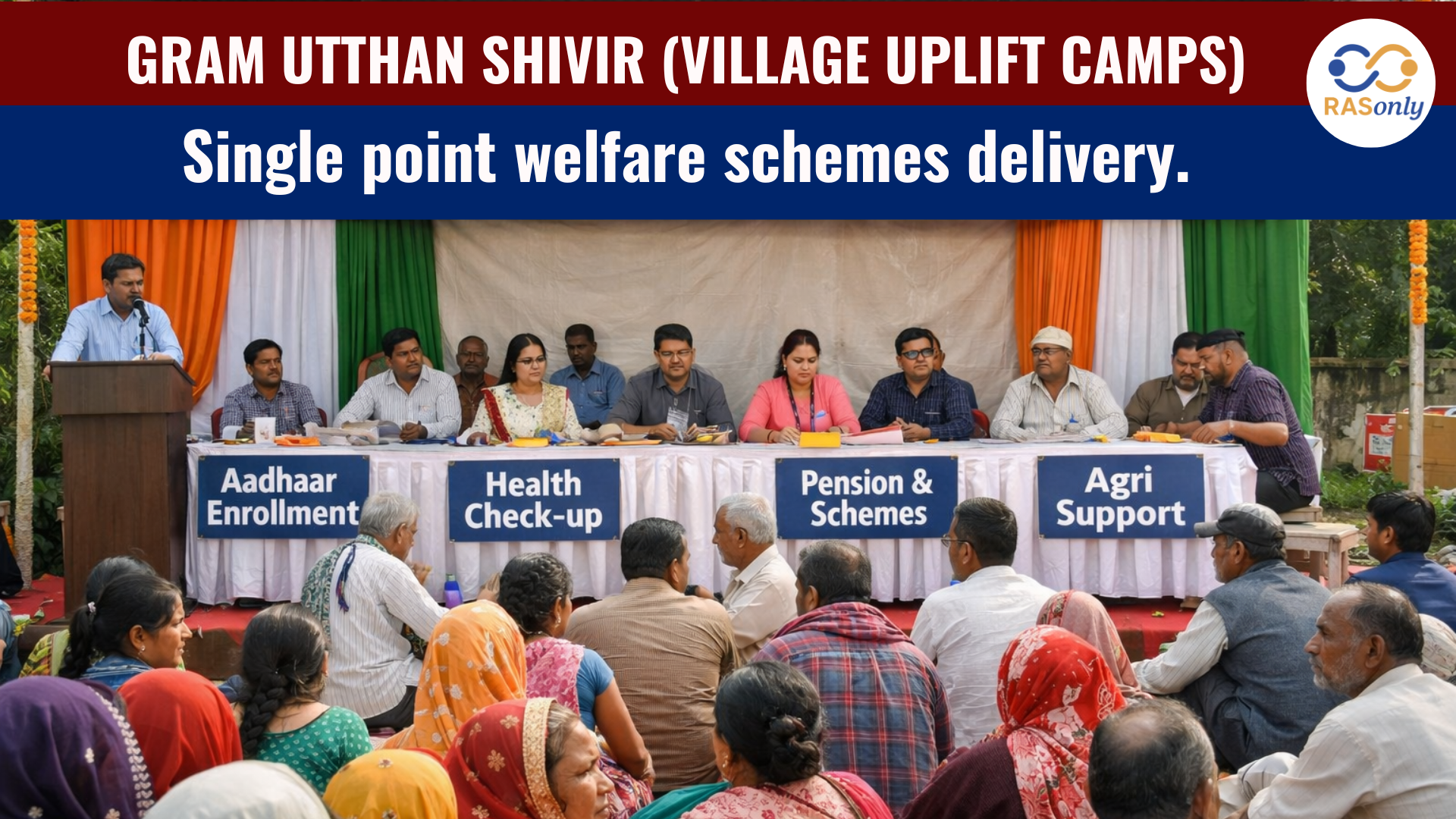
Gram Utthan Shivirs Strengthen Rural Governance in Rajasthan
February 07, 2026
Jaipur Badminton: 72-Minute U-15 Final Creates Record
February 06, 2026👉🏻 Register Today to Join Classes! 👍🏻
- Team RASOnly -
🎯 Benefits of RASOnly Coaching:
- ✅ 1:1 Mentorship with RAS Officers
- ✅ Experienced and Expert Faculty
- ✅ Free Library Access
- ✅ Daily Minimum 4 Hours Must
- ✅ Comprehensive Study Material
- ✅ Regular Tests & Performance Analysis
- ✅ Personalized Guidance & Doubt Solving
- ✅ Online & Offline Class Options
- ✅ Affordable Fees with Quality Education
Key Highlights:
- 👉🏻 3-Day Refund Policy
- 👉🏻 New Batch Starting from 04 August
- 👉🏻 Registration Amount: Only ₹1000




